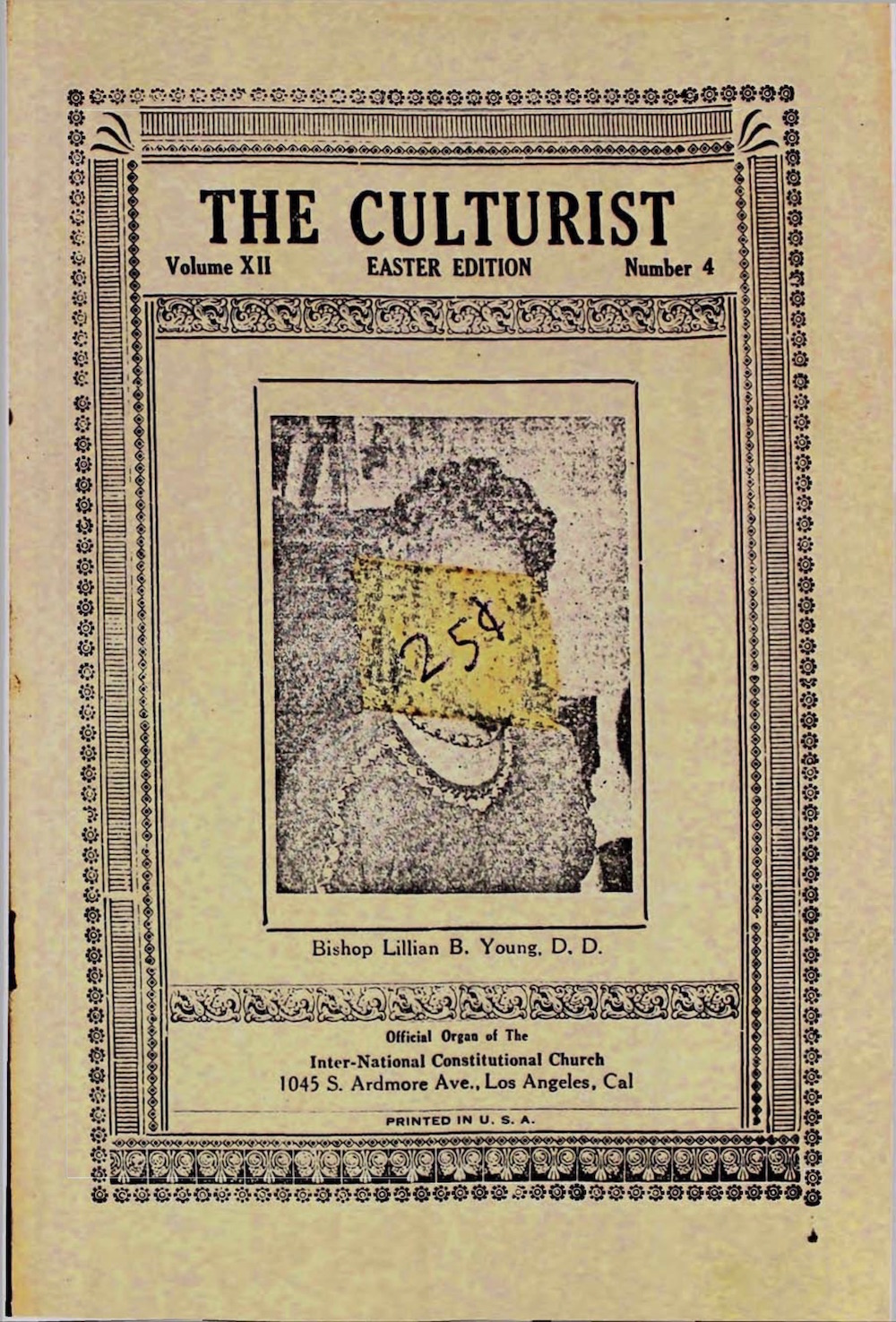

|
| About | Archives | Practices | Contribute | Contacts | Search |
| Periodical: | The Culturist |

|
|
| Summary: |
From Pat Deveney's database:
Culturist, The. The starting date of the journal is estimated from the numbering of the only surviving issue, vol. 13, no. 4, probably December 1949). 24 pp. This was the organ of the Culturist College of Science and Philosophy of Los Angeles, which was in turn the "Instructional and Seminary Department of the Inter-National Constitutional Church." Although the church listed its belief in "a LIFE HEREAFTER, A PROGRESSIVE SPIRITUAL LIFE, advancing step by step, until ATTUNEMENT is ATTAINED with the DIVINE MIND of the UNIVERSE. We believe in the COMMUNICATION of those in the SPIRIT WORLD with those in the PHYSICAL WORLD. We believe in the RETURN OF SPIRIT TO EARTH and its MATERIALIZATION," etc., it was apparent that the church and college existed to bestow legitimizing degrees on those working in the vineyards of mental healing and the development of psychic powers--a conclusion the journal adamantly denied: "That many members, in the past, have misunderstood the purpose, the functions and the realities of the Church and have regarded it as a mere licensing bureau, existing for the sole purpose of issuing them papers, to legalize their activities. THIS IS ERRONEOUS and such an idea must be CORRECTED AT ONCE." The name of the"Constitutional Church" was obviously chosen to shoehorn its activities under the protection of Religious Clause of the U.S. Constitution, and the organization then provided aspirants with all that would be needed to organize a church or school of occult or psychic development on a turnkey basis: a "Complete Seminary Course" with six subjects of 12-22 lessons each (25 cents a lesson), plus a special "matriculation fee" for a diploma and grading examination papers, all eventuating in the Master Diploma that gave the holder the right to add "Doctor of Divine Law" (D.D.L.) to his name. After the expiration of a year from graduation, the student could earn the Doctor of Divinity degree (D.D.), the Second Degree of the Church, upon making a suitable donation. In addition to this, the student (always for a fee) could become an accredited minister in the Church and eventually a Bishop or Archbishop, and could aspire to becoming a member of the Faculty of the College of the Church Seminary, a position that allowed the organization of branch seminaries locally, again with special licensing fees and requirements. Most of the journal is devoted to listing the ministers affiliated with the church and their various College of Occult Science, Temples of Science, College of Divine Healing, Culturist Schools of Wisdom, and the like, which provides an interesting light on this underground in the period. In organizing this elaborate structure, Kelso had obviously learned from the fates of H.H. Holler of the Holy Theomonistic Church and other predecessors, and tried to keep up the formal structure of a church and to limit the diplomas issued by his mill to non-objectionable ones in various aspects of divinity. The church and college appear regularly in the newspapers from the 1940s through the 1970s, usually in accounts of a palmist, healer, astrologer or soothsayer attempting to beat the rap of violating the fortune-telling ordinances by displaying his ordination papers--almost uniformly without success. Kelso and his Spiritual Psychic Science Church, Inc., achieved a brief notoriety in the newspapers in 1936 when the Los Angeles Ministerial Association revealed that it had had obtained (for a fee of $10.00) a Certificate of Ordination from the church for a duck -- under the name "Drake Googoo." The duck was "stripped of his ecclesiastical plumage," the Times reported, for failure to report to the mother church, as required. One issue (13/4) in Skidmore Library, Lily Dale.
|
| Issues: | The Culturist V12 N4 1850 (Easter) |
|
|